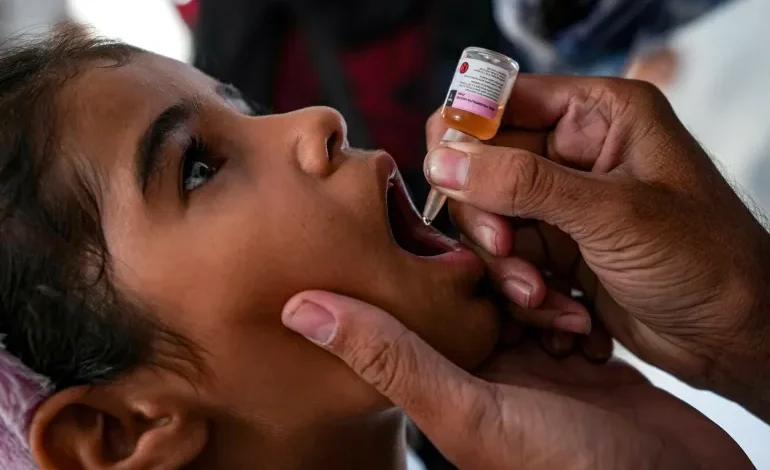The world’s decades-long campaign to wipe out polio is now facing a severe financial crisis, and with it, the real risk of losing hard-won progress.
The Global Polio Eradication Initiative (GPEI), a coalition that includes the World Health Organization (WHO) and the Bill & Melinda Gates Foundation, will see its budget slashed by 30 percent in 2026, leaving a $1.7 billion hole through 2029.
“The significant reductions in funding … mean that certain activities will simply not happen,” said Jamal Ahmed, WHO’s director of polio eradication, at a Tuesday press briefing.
The shortfall comes as foreign aid contracts sharply, particularly from the United States, which has scaled back its funding since President Donald Trump returned to office. Major European donors, including Germany and the UK, have also trimmed their contributions, a triple blow to a programme that depends almost entirely on international goodwill.
Still, Ahmed insists the finish line is visible:
“Eradication remains feasible and is doable. We need everybody to remain committed and ensure that no child is left behind.”
To stretch its shrinking funds, the GPEI plans to narrow its focus to surveillance and vaccination in high-risk areas, mainly Afghanistan and Pakistan, where wild poliovirus still circulates. It will also integrate efforts with other health drives, like measles campaigns, and use fractional dosing, delivering just one-fifth of a normal vaccine dose to extend supplies.
Lower-risk regions could see scaled-back operations unless new outbreaks occur, officials said, a risky move that could allow the virus to resurge in fragile health systems.
Since 1988, global vaccination efforts have cut polio cases by more than 99 percent, but the virus continues to exploit weak immunisation coverage and political instability. In 2025, 36 wild polio cases were reported in Afghanistan and Pakistan, while 149 vaccine-derived cases surfaced elsewhere, including Nigeria.
The latter, though rare, arise when the weakened virus in oral vaccines mutates and spreads among unvaccinated populations, a reminder that halting vaccination now could be catastrophic.










The latest news in your social feeds
Subscribe to our social media platforms to stay tuned